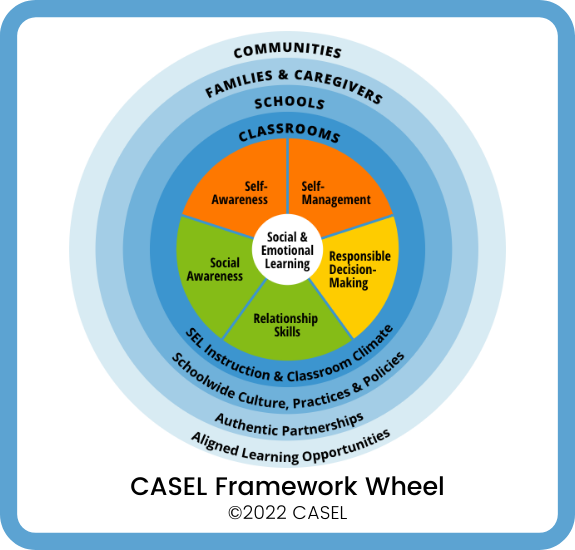
Social-Emotional Development
| ❝
School counselors are committed to supporting students' social/emotional needs. As advocates for students, school counselors promote a positive environment that enhances students' ability to properly manage the social/emotional demands of their lives. School counselors use appropriate appraisal methods to promote a school environment designed to propel students toward positive mindsets and behaviors supporting social/emotional development through direct (e.g., classroom curriculum, group counseling and individual counseling) and indirect (e.g., collaborating or consulting with staff, families or communities) services. ~American School Counselor Association~ ❞ |
 |
The School Counselor's Role
School counselors play a critical role in supporting social/emotional development as they:
- Collaborate with classroom teachers to provide the school counseling curriculum to all students through direct instruction, team-teaching or providing lesson plans for learning activities or units in classrooms aimed at social/ emotional development (ASCA, 2019)
- Understand the nature and range of human characteristics specific to child and adolescent development
- Identify and employ appropriate appraisal methods for individual and group interventions that support K-12 students' social/emotional development
- Know and utilize counseling theories to inform both direct and indirect services providing support to K-12 students' social/emotional development
- Use assessment in the context of appropriate statistics and research methodology, follow-up assessment and measurement methods to implement appropriate program planning for social/emotional development
- Select and implement technology in a school counseling program to facilitate K-12 students' social/emotional development
- Serve as a referral source for students when social/emotional issues become too great to be dealt with solely by the school counselor, including crisis interventions
|
❝ Collaborative for Academic, Social, and Emotional Learning (CASEL) The CASEL 5 addresses five broad and interrelated areas of competence and highlights examples for each: self-awareness, self-management, social awareness, relationship skills, and responsible decision-making. The CASEL 5 can be taught and applied at various developmental stages from childhood to adulthood and across diverse cultural contexts. Many school districts, states, and countries have used the CASEL 5 to establish preschool to high school learning standards and competencies that articulate what students should know and be able to do for academic success, school and civic engagement, health and wellness, and fulfilling careers. ~ ©2021 CASEL~ ❞ |

CASEL's Framework
for Social and Emotional Learning (SEL)
Resources
|
Curriculum Guides |
